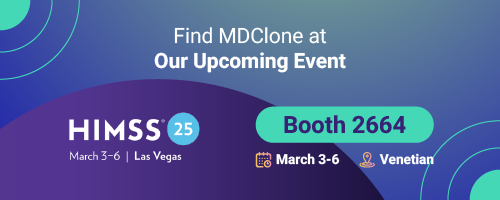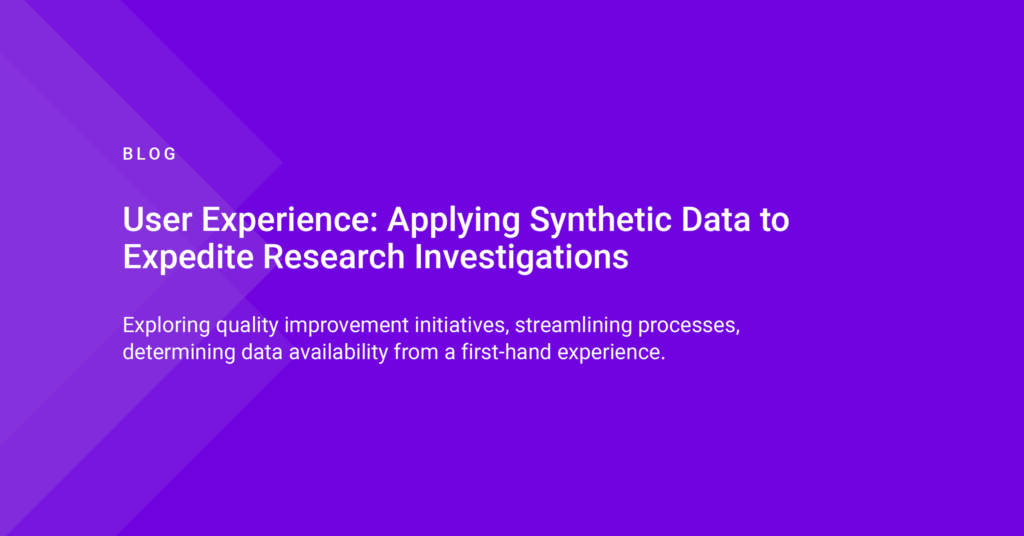If you are in the world of research, you know that the cycle can be tedious and labor-intensive. The barriers to discovery are exhaustive and the process filled with obstacles, but there is a new research methodology that puts the control into your own hands. Dr. Jacob Greenberg shares his experience using the MDClone ADAMS Platform to accelerate the entire research process.
>
“MDClone has made it possible to explore many more questions and much more quickly than I could have otherwise.””
Dr. Jacob Greenberg is a complex spine surgery fellow at a large-scale health system in the United States, and his current role includes providing surgical care for the full spectrum of adult spine disease. A former Resident Physician at an academic medical center in the United States, Dr. Greenberg has extensive experience using the MDClone ADAMS Platform. Dr. Greenberg has utilized MDClone’s Platform for a variety of purposes but mostly to expedite research investigations and explore quality improvement initiatives. MDClone’s self-service capabilities enabled Dr. Greenberg to independently utilize data to accelerate job functions and explore information in real time with limited barriers.
Read Dr. Greenberg’s Q&A to learn firsthand how MDClone impacted his role as a surgeon and researcher.
Q: HOW DID YOU HEAR ABOUT MDCLONE?
A: I had learned about MDClone from one of my research mentors working to pioneer the use of synthetic data.
Q: HOW DID MDCLONE IMPACT YOU AND YOUR ROLE?
A: I used MDClone for a number of purposes. I’ve done some preliminary analyses to help plan for grant submissions. For example, using MDClone I was able to determine the frequency of certain types of surgeries that were relevant to particular grants we were submitting. Additionally, I’ve explored a few research hypotheses such as the frequency of ER presentation for different neurosurgical problems during the pandemic. I also worked with a team on a formal validation study evaluating our ability to use MDClone to study outcomes from spine fusion surgery.
Q: WHAT ATTRACTED YOU TO MDCLONE?
A: Both the ease of use and the broad possibilities are what attracted me to MDClone. Typically, asking questions of real patient data is a time-consuming process that can involve spending weeks — or longer — submitting an IRB application, requesting data, etc. With MDClone, I could explore clinical questions in real time, expediting the research process. For example, when evaluating ER presentations for certain neurosurgical conditions, I found that some diagnoses were less common than I expected, making the analyses I had planned less practical. Having this information saved me the time from pursuing an IRB application and data request for a question our EHR was not equipped to answer. I’m excited about the potential for the future, including multicenter initiatives and expanding the breadth of the data included in the MDClone platform.
Q: WHAT VALUE DID MDCLONE BRING TO YOU AS A CLINICIAN?
A: As a clinician, I was able to explore questions related to our practice and outcomes far faster than I could have previously. For instance, one outcome I had looked at is readmission, which has a lot of importance to the hospital system. MDClone allowed me to determine 30-day readmission rates for several common surgeries and look at factors that increase risk. I’ve also tried to look at certain demographic factors in our patients, such as employment or marital status, but found that those variables are often not coded in our EHR. While I couldn’t include those variables in my analysis, using MDClone I was able to quickly determine the data available for my study.
Q: WHAT DOES SYNTHETIC DATA HELP YOU DO?
A: As I mentioned above, at this point I have mostly used synthetic data to expedite research investigations and to a lesser degree explore potential quality improvement initiatives. In the future, I hope this platform is able to streamline collaborations and include additional types of data relevant to the patients I treat.
Q: WHAT TIME SAVINGS HAVE YOU REALIZED?
A: The main time savings for me have been bypassing the process of preparing and submitting an IRB and then working with a data broker every time I want access to data. That process can easily take several weeks or months and leads to many ideas being abandoned before they are ever examined. MDClone made it possible to explore many more questions and much more quickly than I could have otherwise.
KEY TAKEAWAY:
MDClone has the potential to dramatically streamline research and quality improvement initiatives. As EHRs expand their data capture and multicenter collaborative platforms are established, I expect opportunities will only expand further.
See a demo
The ADAMS Platform
View the powerful, self-service data analytics environment enabling healthcare collaboration, research, and innovation.










